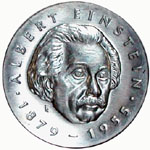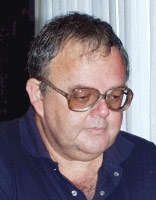02.10.2005
NIGHT WATCH №2: TOPALKA, HIT HIM HARD!

This anguished cry of a Bulgarian supporter started the ICC relay of perhaps one of the most dramatic encounters of the world championship first round, during which Bulgarian Veselin Topalov played "at home" with Peter Leko.
Once Lev Polugayevsky formulated one of the Sicilian commandments: play b5-b4 as soon as possible. Topalov scrupulously follows the commandment of the Mogilev classic, gets through questionable and bad positions and… gathers his crops regularly.
No, Leko seemed to do everything correctly – he improved White’s play, inventing a logical novelty, secured his king, got centralized. Then he thought for a while – and secured his king one more time. He thought again – and centralized a little bit more. If Judit Polgar was walking along the stage, she would envy him – what a position! Had she got the right to play instead of her countryman – Black would have never lived out.
We witnessed “Caro-Kann Tal” syndrome – Tal’s results in the Caro-Kann defense in the matches against Botvinnik were in an inverse correlation with objective evaluation of positions after the opening. Leko "did what everyone does" and was rewarded – not a full point yet, but a position with a decisive advantage. He had just to finish skillfully. However, by this moment chess features of Leko, due to which it was he and not Kramnik who went to San Luis, started to tell. Peter avoids any possible risks! The only way of avoiding is to calculate all variations in critical continuations. In the game against Topalov there was an overchoice of alternatives, and it was quite impossible to calculate them all. And Leko does not play games with intuition. So he made bracing moves hoping an apple to follow straight into his hands – and it stroke his head.
In addition Peter got into a time trouble. He conscientiously considered variations, it’s true, but he could not find a forced, fool-proof win. He made a howler in the time trouble after which Veselin gladly exchanged the queens – White’s won position turned into the lost one. A fact that the Bulgarian did not find time to send his king in exile turned out to be advantageous instead of being disadvantageous, black bishops took under their control as much space as it was possible and by move 40 everything was finished.
The defeat is certainly tragic. But it would be a silly thing to plough under Leko. It happened that he was defeated by Kramnik at the start of the cigarette match, in a different way, but mainly on his own initiative, and how did things turn out? – he nearly became a champion. Smiling spectacled terminator will be back.
By the way, when Leko had been looking for ways to win and online commentators exchanged forced variations, one more insane than another, a kibitzer exclaimed: “A typical boring game of Leko. I’m waiting for someone to say it.”
I’m speaking about Leko all the time, and what about Topalov? Veselin got such a bad position that he would not be criticized, if he lost it immediately. An opening catastrophe, a ball is round, “Fritz” is strong. But he decided to hold out as long as he could – through curiosity. And as a computer program he was making the strongest moves. An ordinary chessplayer, who put paid to his position, can not act this way. This is the way elite grandmasters withstand, possibly not even all. The same way plays a master who blundered a pawn in a blitz game against a candidate master – he makes moves quickly, protects every attacked piece and waits for the opponent’s blunder.
Generally speaking, the Hungarians turned a high day into the night themselves. There are questions, touching upon perplex, about the way Judit Polgar lost. Was she so much confused by Vishy’s opening choice? Anand certainly remembered how he hardly scuttled into the woodwork from Judit in the rapid chess match, desolating "WorldChessRating" website staff which is fond of bookmaker's money. No 1...с5, it’s time to become mature. Caro-Kann is a favorite weapon of lazy people (it’s the easiest for learning correct opening, that’s why some reputable experts do not consider it to be a correct one). But Polgar’s response should be called the Yartsev variation or “1:7” variation: everybody defends at the beginning and afterwards midfielders join the attack, then gaps between the lines predetermine a smashing defeat. Anand even did not trouble himself very much with a search of precise moves as his strategic advantage was too great. When the opponent was in a time trouble he missed a forced mate (that was noticed by crowds of people, including the night watchman) for the sake of insignificant extra pawn. But it was quite enough.
After the only Muscovite of the tournament moved the king on h1, a displeased voice from a virtual audience said: “Moves of Morozevich are too normal!” Well, exotic 1.Nс3 was dismissed, but Kasimzhanov masterfully solved opening problems in the Sicilian and even got a more pleasant position. In the meantime the audience took interest in a more serious business. While the most active of 1500 people who followed the game Leko-Topalov in the ICC were burning each other and their processors with variations, dignified fans of Moro started discussing more probing issues. For one thing, they compared Kasparov with Reagan. Then they passed on to guitarists, mentioning about thirty names – Max Notkin admitted that they covered a broad range – and commended each of them with moderation. In conclusion they made a comparative rating of rock groups. By this time a time trouble came and their attention shifted to the board. Bored with approximately equal position, Morozevich decided to amuse the audience by throwing away a pawn, and on hearsay he got through something more terrible. However, a margin of safety was big enough and Kasim, having tortured our Alexander for some more time, let him go in peace.

Encounter Svidler-Adams emotionalized the audience less. Disappointment was a dominant emotion. “Boo to Svidler! Boo to Adams! – whirred CapsLocked supporters. “It’s OK with Svidler’s boo, as he stood better, but why to Adams? – for playing the Petroff defense!” By the way it’s dubious whether Svidler stood better, Teimour Radjabov has his own opinion on this matter. Nevertheless, this result was the fourth one that Olena Boitsun guessed in the yesterday “Night Watch”. Olena wins a medal for a perfect result! And our readers get the opportunity to line their pockets during WCA – you are welcome to e3e5.com, read our forecasts and beat the bookmakers!
“Yesterday’s heroes” with Teimour Radjabov

“Generally, everybody knows that Topalov plays b4 at the earliest opportunity and shows good results. Leko responded to b4 quickly at the beginning, but after d5 started thinking for long – he might have overestimated White’s attacking chances during his home preparation. Topalov seemed to play very precisely in the middle game.
Polgar-Anand was a very strange game. I think that Judit confused move order – how is it possible to allow voluntarily Nf6 with bishop е4 getting attacked, and Bg4, e6 to follow? In the middlegame Anand in typical for him style quickly advanced everything, counted everything, and in point of fact got Polgar attacked. Well, she played in a strange way – may be jet lag still tells on the players? Except, as always, Anand and Topalov!
Svidler – Adams. Adams moved Nа5 avoiding main variations Bf5, Rе8 etc. I do not know why the opponents accepted a draw, it seemed to me that black stood better. However, White's position wasn't that bad. For sure, Svidler considered his position being unpleasant. At the moment of signing a peace treaty he had notably much time.
Morozevich – Kasimzhanov. Usually instead of b5 Black plays Be6 with a5 to follow. Svidler used to play it, for example. But Kasimzhanov decided to go for b5, and it seemed to be OK, he even stood better during the game. However, reaching an endgame with 3 vs. 2 on the kingside and one pawn each on the queenside, there were no chances to win. And in general the play was approximately equal.
Despite the fact that two out of four games ended decisively, the round was absolutely uninteresting. From the point of view that in the lost games there was no proper resistance of White, and drawn games were too peaceful. However, it’s possible that the strength of the players is approximately equal and it’s difficult to get a sharp play with mutual chances."
Round forecast: Jochanan Afek, IM, chess composer

"Topalov – Anand ½-½ . They both won yesterday, that’s why most likely they will try playing more carefully. There will be a draw.
Adams – Polgar 1-0. An interesting pairing. I would say so: Adams will win. It is a wild guess, but I think that Judit will try to compensate yesterday’s defeat. She played badly yesterday, she chose a wild plan… Perhaps she will try to surprise Adams and make use of the fact that he is not among the favorites, to return to 50%. This will be a moment when Adams will get an advantage.
Kasimzhanov – Svidler ½-½. A draw, perhaps. I do not have an exhaustive explanation, but Svidler is a better player. Maybe Kasimzhanov will try to initiate something, but Svidler will just hold a position and, perhaps, will be satisfied with a draw.
Leko – Morozevich 1-0. I wager on Leko. Of course, Morozevich is a wonderful player, but any irresponsible ideas and strange opening variations can be expected from him. Leko wants badly to forget yesterday and he will be able to do this by winning in style.
It’s difficult for me to play the role of a prophet. Only Topalov-Anand game forecast is based on logics, the rest forecasts are just wild guesses!"
